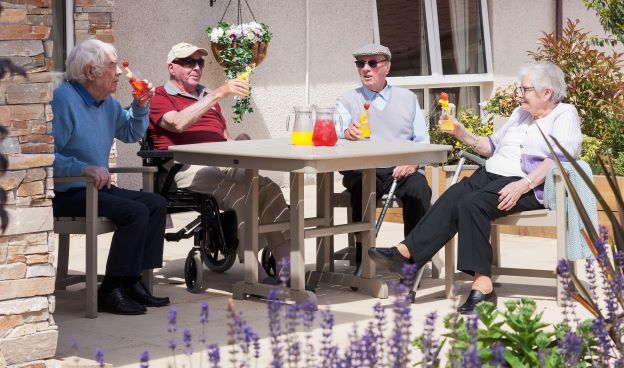Boosting Health in Elderly Care: The Importance of Vitamin D

What is Vitamin D?
Vitamin D plays a crucial role in the body by regulating calcium and phosphate levels, essential for healthy bones, muscles, and teeth. It is particularly important for elderly individuals in care homes who might not get enough from natural sources.
Sources of Vitamin D
The primary source of vitamin D is sunlight. However, in Scotland, adequate sunlight is only available during the summer months. Dietary sources include oily fish and liver, but these alone are often insufficient, especially for care home residents who have limited outdoor exposure.
Recommended Intake
The Scientific Advisory Committee on Nutrition advises that people at higher risk of deficiency, including care home residents, should take a daily supplement of 10 micrograms (mcg) or 400 units of vitamin D year-round. This recommendation is supported by the Care Inspectorate's "Eating and Drinking Well in Care" guidance.
Who Needs Supplementation?
All residents in care homes should be considered for vitamin D supplementation unless they are already prescribed it. This involves reviewing their health status and discussing supplementation with them or their representatives.
Who Should Avoid Supplements?
Vitamin D supplements may not be suitable for individuals who:
- Are already taking vitamin D supplements or multivitamins containing vitamin D.
- Have severe kidney issues or are under kidney/renal specialist care.
- Are under endocrinologist care for hormone issues.
- Have active or advanced cancer.
- Have high vitamin D or calcium levels (hypercalcaemia).
- Have hyperparathyroidism, sarcoidosis, or tuberculosis.
Consequences of Deficiency
While low vitamin D levels may not always present symptoms, some individuals may experience tiredness and general aches. Severe deficiency can lead to osteomalacia in adults, causing bone pain and tenderness due to soft and weak bones.
Vitamin D supplementation is essential for elderly care home residents to maintain their health and prevent bone-related issues. Regular reviews and discussions with healthcare providers ensure that supplementation is appropriate and beneficial.
All Next of Kin contacts should have been contacted by the managers at Pacific Care homes regarding vitamin D supplementation. Our Clinical Director is working with the pharmacy to determine if residents can receive the supplements based on their current medication and medical conditions. You will be contacted individually over the coming weeks with the next steps, if not already.
To stay up to date with all the latest news from across our homes and day care centre, be sure to follow us on social media.




